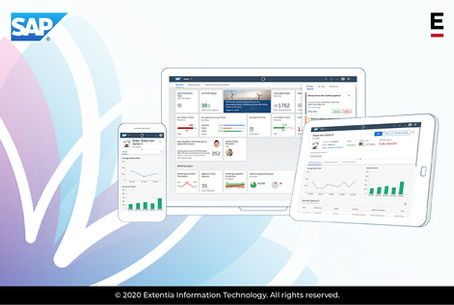In our previous post, we talked about the conception of fintech, its current scenario, and its future. As the COVID-19 pandemic has changed the working culture and business landscape for many industries, we try to see if the pandemic and fintech space prove to be a complementing duo.
The furor over the pandemic has shaken the world to its core, and its ripples continue to be felt. The shutting of plenty of bank branches, restricted in-person access for emergency services, and lockdowns brought the world to a standstill. Social distancing practices have also affected business growth, and those investing in real estate were forced to pause their activities until further notice. Accessibility of financial services became a significant challenge as the crisis hit the world in the early months of 2020. However, some sectors gained prominence and growth – fintech being one such.
During the COVID-19 pandemic, the fintech industry has continued to help expand access to financial services not just for businesses but also for commoners. The affordable and easy access to financial services is critical for poverty reduction and economic growth for all countries, and the fintech industry did just that. The fintech innovations during the COVID-19 pandemic helped reduce the cost of providing services, making it reachable to more people while reducing the need for face-to-face interactions, which is highly essential for keeping the economic activity during the pandemic going.
The quote of Caroline Freund, World Bank Global Director for Finance, gains relevance when we talk about Fintech about the COVID-19 pandemic. She said, “Fintech has shown its potential to close gaps in the delivery of financial services to households and firms in emerging markets and developing economies.” This stands accurate, as, despite the disruption in the economy by the coronavirus pandemic, fintech companies have proven resilient and adaptable.
The impacts of the pandemic on various financial systems
The impact of the pandemic on fintech follows a different curve for different modes. Digital banking seemed to have flourished more than ever while investments and remittance volumed comparatively lower as businesses and consumers had reduced their outgoings and had cut back on non-essential purchases. Service providers increasingly and rapidly introduced to the customer, several innovative products that meet their demands and help combat the virus’ impact. For instance, it introduced a technology that allows government departments, NGOs, and community groups to distribute financial support funds to those in need directly. Another technology assists consumers in accessing useful information about personal finance, utilities, tax, debt, and more. So, fintech firms have brought a positive change in the market for the customers.
With all operations and transactions happening virtually, it has strengthened the digital shell of financial communication. Acting upon the need of the situation, the financial services firms, and eventually, the customers have changed their way of functioning. The role of fintech during the pandemic has been evident in day-to-day operations. It has allowed people to manage everyday essentials from their homes, at their comfort and requirement. This has highlighted a transformation in the digital world and has remarkably transformed the lifestyle and traditional choices of people.
Fintech industry in numbers
It is now apt to say that fintech promises us a bright future, clearly why financial institutions and technology firms have increasingly begun investing in fintech technologies since 2020 and continue to pour in more. India alone had attracted $2.7 billion in fintech investment in 2020, and according to KPMG’s Pulse of Fintech, a bi-annual report on fintech investment trends, India has almost matched its total fintech investment in 2020, with $2 billion in investment in the first half of 2021. And globally, the M&A deals continued at a very healthy pace, accounting for $40.7 billion across 353 deals in H1’21, compared to $74 billion across 502 deals during all of 2020.
Bottom line!
Fintech is a significant player in the global economy including its recovery post-pandemic. Its role in the business landscape and the framework of the modern society at large is expanding by the day and it appears to be here to stay!
In our next post, we will delve deeper into the trends in fintech for 2021 and 2022.




